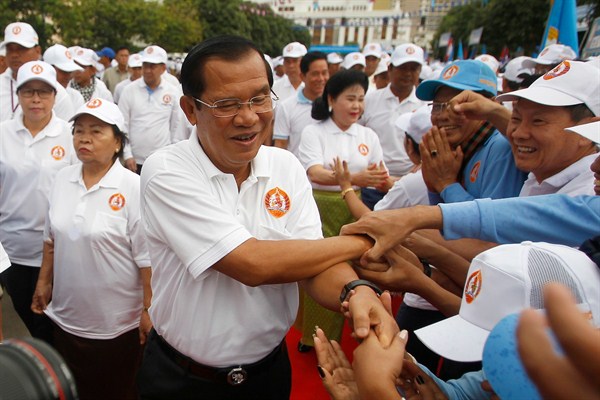Prime Minister Hun Sen and his Cambodian People’s Party now utterly dominate Cambodia, after the CPP won control of the entire lower house of parliament in elections late last month. The regime had, of course, ensured in advance that the CPP would sweep the vote, the culmination of Hun Sen’s increasingly brazen repression. There were few if any impartial observers on election day.
With Cambodia’s political regression all but complete, what is left for the remnants of the opposition? How will key international donors and foreign countries respond, and what’s next for Hun Sen himself?
The Cambodia National Rescue Party, or CNRP, which was officially dissolved by the country’s top court last November, and other opposition forces can expect more efforts to throttle them. Although Cambodia still maintains a more vibrant civil society and media than, say, Laos, Hun Sen will likely keep up his crackdown, while adapting his party for an eventual shift at the top, a hard task in a country he has ruled for three decades. He could use the post-election period to push forward his transition plans, which likely involve positioning his son, Hun Manet, to eventually succeed him. Hun Sen will surely try to detain more CNRP members if they return to Cambodia from exile, and shutter some of the more outspoken Cambodian civil society groups that still remain active in the country.

